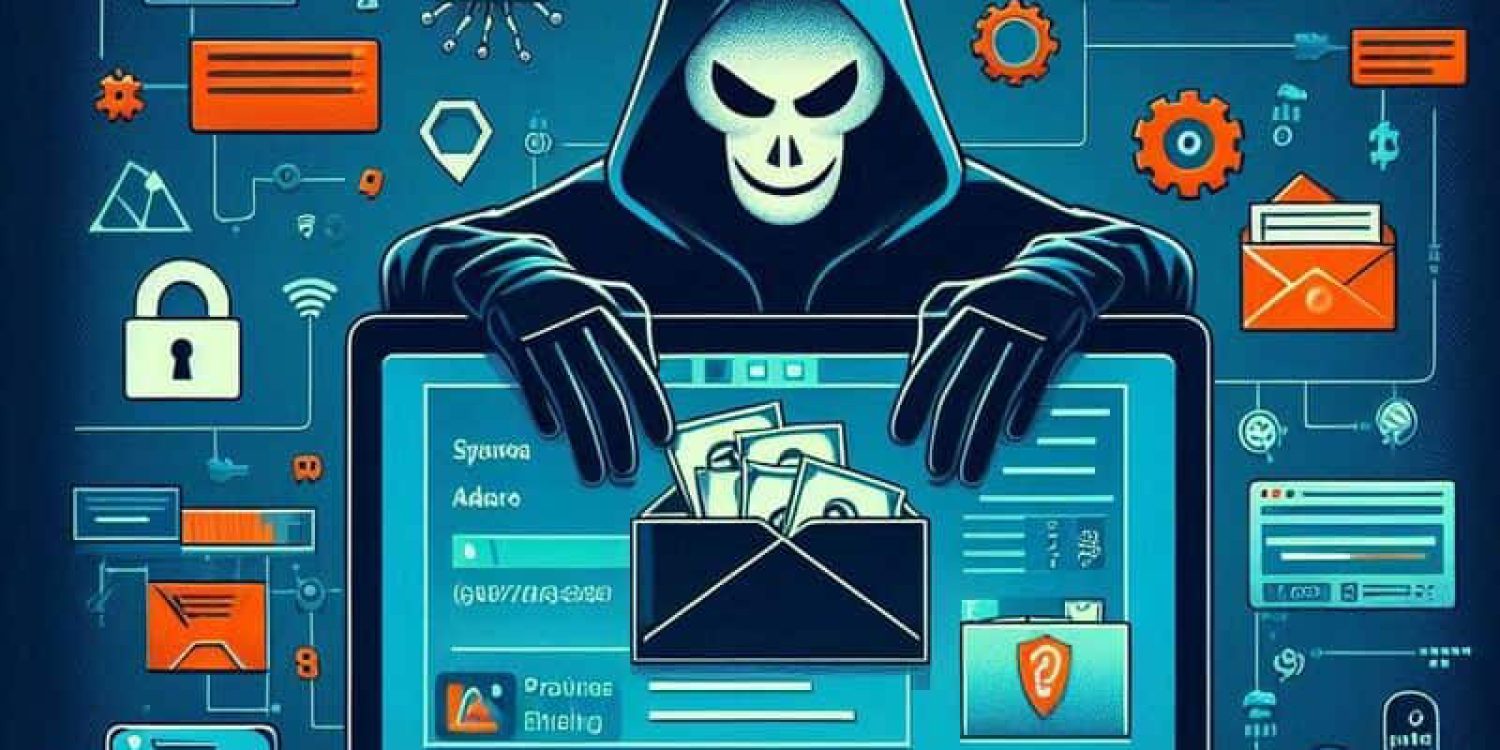Serving local customers for over 25 years.
Trusted by local business for reliable website design, SEO services and Digital Marketing in Somerset, Dorset, Devon, Wiltshire and Gloucestershire. 30 years of online marketing experience across the world.
Table of Contents
ToggleProtect Your PC with a Virus Check
Regular PC virus scans are vital for keeping your computer secure and running smoothly. Viruses, malware, and other harmful software can create problems, including slowing down your system and stealing critical data. By scanning your computer for viruses regularly, you can find and eliminate dangers before they can do serious harm.
One primary reason for regular virus checks is to secure personal and financial information. Malware can be programmed to steal your passwords, credit card numbers, and other sensitive information, placing you in danger of identity theft and fraud. Furthermore, viruses and other dangerous software might cause your computer to crash or become inoperable, resulting in lost work and productivity. By running regular virus scans, you can protect your computer from these dangers and protect sensitive information.
Regular virus checks are about security and maintaining your computer's functionality. Malware can deplete system resources and slow your computer, challenging routine activities. Your computer will run smoothly and effectively once you frequently eliminate these dangers by scanning them for viruses. This means uninterrupted work, internet surfing, and a computer always ready when needed. Regular PC virus scans are a simple yet effective way to protect your personal information, maintain your computer's performance, and avoid security concerns.

Central Points to Remember
- Regular PC virus checks are essential to ensure the security and performance of your computer.
- Malware poses a significant threat to your PC, including data theft, system damage, and privacy invasion.
- Performing a PC virus check involves using antivirus software to scan for and remove malicious programs.
- Choosing the suitable antivirus software for your needs involves considering factors such as real-time protection, system impact, and additional features.
- Scheduling regular malware scans is crucial to maintaining the security of your PC and preventing potential threats.
- Additional steps for PC security include keeping your operating system and software updated, using strong passwords, and being cautious of suspicious emails and websites.
- If your PC is infected, disconnect from the internet, run a full virus scan, and seek professional help.
- Understanding Malware and Its Threat to Your PC
The term “malware” describes a broad category of harmful programs that aim to harm, interrupt, or otherwise interfere with an electronic system. This includes viruses, worms, Trojans, ransomware, spyware, and adware. Each sort of malware has a unique aim and method of attack, but they all seriously threaten your computer's security and operation.
Viruses, the most familiar malware, are engineered to replicate and spread from one machine to another. They can cause many issues, including file deletion and identity theft. Worms, similar to viruses, can spread without the need for a host program, making them particularly dangerous. However, Trojans, in a league of their own, masquerade as legitimate software to deceive users into installing them, thereby granting cybercriminals access to sensitive data or control over the infected computer.
Ransomware is a devious virus that encrypts the victim's files and requests payment to unlock them. Spyware and adware are programmes meant to collect information about a user's surfing behaviour and display unwanted adverts. Regardless of the type of malware, it is critical to recognise the potential hazards to your computer and take preventative actions to protect against them.
How to Perform a PC Virus Check
A PC virus scan is a simple operation that may be completed using antivirus software. Most recent antivirus programs have real-time protection and frequent scanning features to detect and remove viruses from your computer. Launch your antivirus programme to do a virus scan and select the option to run a full system scan. This will start a full scan of all files and programs on your computer, looking for any malware indicators.
In addition to complete system scans, many antivirus programs allow you to do fast or bespoke scans on specific files or folders. Quick scans are excellent for swiftly checking for potential dangers, but custom scans allow you to target specific areas of your computer that you believe may be contaminated. To keep your computer malware-free, perform these scans regularly.
Running antivirus software is crucial to computer security but is not the only step. Equally important is updating your operating system and other applications with the most recent security patches. Many malware assaults exploit holes in obsolete software; thus, keeping everything updated is vital to preserving your PC's security. Taking these measures and running regular virus scans can help safeguard your computer from potential security risks.

Choosing the Right Antivirus Software for Your Needs
When selecting antivirus software for your computer, various variables must be considered to ensure you get the best program for your needs. The first consideration is the level of security provided by antivirus software. Look for a program that provides real-time malware protection and firewall, email, and online security capabilities. These features can help prevent malware from infiltrating your computer in the first place.
Another essential consideration is the usability of the antivirus software. You should feel confident in your ability to install and use it, with an intuitive interface that allows you to execute virus scans and control security settings easily. Also, evaluate how the antivirus software affects the functionality of your machine. Some antivirus programs might be resource-intensive and slow down your computer, so choose one that provides robust protection without losing efficiency.
Consider the antivirus software provider's reputation and track record. Look for programmes from respected organisations with a track record of providing dependable security solutions. Using review sites and reputable recommendations will help you make an informed choice about which antivirus software is best for you. By considering these aspects and selecting the appropriate antivirus software for your needs, you can help safeguard your computer from potential security risks.
Scheduling Regular Malware Scans
In addition to manual virus checks, schedule frequent malware scans to protect your computer from attacks. Most antivirus programs allow you to plan automatic scans regularly, such as daily, weekly, or monthly. By scheduling regular scans, you can ensure your computer is constantly scanned for malware without remembering to start them manually.
Schedule regular malware scans, especially for busy people who may not have time to run manual virus checks regularly. Setting up automatic scans gives you peace of mind, knowing that your computer is regularly examined for potential dangers without further effort. This might help maintain your PC's security and performance without requiring continual monitoring.
When planning your scheduled malware scans, remember your time flexibility. This allows you to avoid disruptions to your work or other activities. For instance, scheduling scans during off-peak hours when your computer is idle can ensure they don't interfere with your tasks. By taking control of your PC's security through regular, well-timed scans, you can minimize disruptions to your daily routine.
Additional Steps for PC Security
In addition to running regular virus checks and scheduling malware scans, there are various other things you can do to improve the security of your PO. A crucial strategy is to use two-factor authentication whenever feasible and consistently use strong, unique passwords across your online accounts. Even if your passwords are compromised, this can prevent unauthorised access to your accounts.
It's also necessary to exercise caution when exploring the internet and downloading files or programs. Avoid downloading files from unfamiliar sources, and be cautious when clicking on fishy links, which may include malware or other security risks. Be aware of phishing attacks, in which fraudsters fool you into disclosing important information via bogus emails or websites.
Another critical step towards PC security is to back up your essential files regularly. If malicious software infects your computer or suffers a hardware malfunction, maintaining copies of your files might help you avoid losing essential data. Consider using a cloud storage service or an external hard drive to back up your files and routinely protect them from danger.
Finally, staying current on the latest security risks and best practices for PC security is critical. Keep current on malware threats and security vulnerabilities, and take proactive steps to defend your PC. Following these additional PC security actions will improve your computer's protection against potential threats.

What to Do If Your PC Is Infected
Despite taking proactive precautions to secure your PC, it is always possible that it can become infected with malware. However, if you suspect your computer has been infected, remember that you can take several steps to resolve the problem and reduce the infection's impact.
If you suspect your computer has viruses, you should first launch your antivirus program and do a comprehensive system scan. If the scan finds any threats, follow the antivirus program's recommended actions to quarantine or remove the affected files. In rare circumstances, you may need to boot into safe mode before running a scan to verify that all dangerous software is discovered and deleted.
If your antivirus software cannot remove the infection or your computer still shows traces of malware after a scan, contact a professional IT support provider or computer repair technician. They can use specialised equipment and skills to clean your computer correctly and return it to a secure state.
In addition to dealing with immediate infection, you should take precautions to avoid future infections by upgrading your antivirus software and implementing additional security measures such as changing passwords and reviewing recent internet activity for evidence of unauthorised access.
Finally, remember that regular PC virus checks are not just a task but a critical part of ensuring your computer's security and efficiency. Understanding the various types of malware and their possible hazards will empower you to protect yourself proactively. With the regular execution of virus scans, scheduling automatic malware scans, selecting the best antivirus programme for your needs, and adopting additional PC security precautions, you are actively contributing to your computer's safety. If your computer becomes infected despite these precautions, taking immediate action to address the virus and avoid future incidences is critical to minimising the damage to your machine's security and performance.
FAQs
What is a PC virus check?
A PC virus check scans a computer system for potential viruses, malware, or other malicious software that may have infected it.
Why is it essential to perform a PC virus check?
Performing a PC virus check is essential to ensuring the security and integrity of your computer system. Viruses and malware can damage your files, steal personal information, and disrupt the normal functioning of your computer.
How often should I perform a PC virus check?
It is recommended to perform a PC virus check regularly, at least once a week, to ensure that your computer is protected from any new threats that may have emerged.
What are some signs that my computer may be infected with a virus?
Some signs that your computer may be infected with a virus include slow performance, frequent crashes, pop-up ads, unauthorized file changes, and unusual error messages.
What are some widespread PC virus check software programs?
Some widespread PC virus check software programs include Norton Antivirus, McAfee, Avast, Kaspersky, and Bitdefender. These programs can scan your computer for viruses and malware and remove any threats that are found.
Are there any free PC virus check options available?
Several free PC virus check options, such as Windows Defender (built into Windows operating systems), Avast Free Antivirus, AVG Antivirus Free, and Malwarebytes, are available. These programs offer basic virus scanning and removal capabilities at no cost.
References
Stay Safe Online: Tips for Preventing Ransomware on Your Dell Device – Ask.com. https://www.ask.com/news/stay-safe-online-tips-preventing-ransomware-dell-device
Beyond the Blue Screen of Death: Exploring Common Causes and Solutions for Computer Crashes and How to Prevent Them | 01. https://vocal.media/01/beyond-the-blue-screen-of-death-exploring-common-causes-and-solutions-for-computer-crashes-and-how-to-prevent-them


















45 Comments
I couldn’t agree more with your points about the importance of regular virus checks for maintaining both the security and performance of our PCs. I’ve had my own share of close calls, which has made this a very personal topic for me. Just last year, I had a scare when my computer started acting strangely, running slowly and showing pop-ups that I had never seen before. It turned out to be a malware infection that had begun to harvest my personal information without me even realizing it. Thankfully, I had just completed a virus scan, and the software caught it in time. It was a real eye-opener for me.
It’s interesting how our personal experiences often shape our understanding of things like computer security. Your scare with the malware sounds incredibly stressful, and it serves as a reminder of just how vulnerable we can be in this digital age. I’ve had my own moments, too—there was a time when I clicked on a seemingly harmless link in an email and it led to a whole mess of spyware. It really made me reconsider what I share online and how often I check for updates and scans.
Your insights on the importance of regular virus checks resonate deeply, especially in today’s digital age where our dependence on technology is ever-increasing. I’ve encountered firsthand the repercussions of neglecting virus scans. A few years back, I lost a significant amount of work due to a malware infection that not only slowed my computer down but eventually led to a system crash. The experience taught me that preventive measures, such as routine scans, are not just about the immediate security threats but also about the long-term integrity of our digital lives.
Your emphasis on the importance of regular virus scans resonates deeply with me. I often find myself reflecting on how our digital lives parallel our physical well-being—just as we prioritize routine health checks to catch potential issues early, our computers deserve the same level of attention.
It’s great to hear your thoughts on this topic, and your experience really resonates. Those unexpected moments when our tech starts acting up can be unsettling, can’t they? It sounds like you had a close call with that malware. It’s remarkable how pervasive these threats can be, often slipping in unnoticed until it’s almost too late.
“I’m so glad to hear you were able to catch that in time! If you’re looking to bolster your defenses even further, check out this helpful resource for the best virus protection tools on the market.”
https://ezi.gold/quillbot
You’re right; those moments when tech acts up can really throw you off balance. It’s fascinating how quickly things can escalate from a minor glitch to a significant problem, especially with the sophisticated methods malware uses to infiltrate our devices. I had a similar experience recently when my computer suddenly slowed down, and I started seeing pop-ups out of nowhere. That prompted an urgent update of my antivirus software. It made me realize just how much we rely on technology and how vulnerable it can make us feel sometimes.
It’s interesting how you draw that parallel between our digital lives and physical well-being. The idea of routine virus scans as a form of self-care for our devices is a compelling one. It reminds me of how we often overlook the little things that can have a significant impact on our overall health—like routine check-ups or even just making sure we walk enough during the day.
I appreciate your thoughts on the importance of proactive digital health; it’s fascinating how understanding the tactics of cybercriminals can really emphasize the need for routine virus scans, much like staying aware of our own vulnerabilities.
‘How Cybercriminals Exploit Vulnerabilities’
https://ezi.gold/how-cybercriminals-exploit-vulnerabilities/.
I couldn’t agree more about the importance of regular virus scans! I had a nasty experience last year when a random email attachment ended up infecting my computer. It was such a hassle trying to recover lost files and deal with the aftermath. Since then, I’ve made it a routine to scan at least once a week.
It’s great to hear about your experience and how it shaped your approach to digital security. Losing important work due to malware can be a real wake-up call. I think many of us can relate to the feeling of vulnerability when our technology lets us down.
“I’m glad to hear that my insights resonated with you! To further enhance your digital safety, check out this tool that could help you stay ahead of potential threats.”
https://ezi.gold/emailoctopus
Your experience really highlights a key aspect of navigating the digital world—it’s all about staying aware and understanding that even small actions can lead to significant consequences. Your moment of clicking on that link is something many of us can relate to. It’s easy to let our guard down, especially when the messages seem genuine or harmless.
I really appreciate your insights on the importance of regular virus checks! It’s something that often gets overlooked in our fast-paced digital lives, but it’s crucial for maintaining both security and functionality. Reading your post reminded me of a time when I neglected my virus scans for a couple of months, thinking I was invulnerable since I was cautious about what I downloaded. Then, out of nowhere, my computer started acting strange, with pop-ups flooding my screen. It turned out I had unwittingly downloaded adware that was not only slowing my system down but also collecting some of my browsing data.
It’s striking how personal experiences can shape our views on technology and security, isn’t it? Your encounter with malware really highlights a situation too many people find themselves in. When our devices start acting up, it’s more than just annoying; it taps into our day-to-day lives, often without us even recognizing the potential harm until it’s knocking at our door.
“Thanks for sharing your experience! It’s a great reminder of how vital regular virus checks are. If you’re looking for effective tools to keep your PC safe, check out this resource that helped me stay protected.”
https://ezi.gold/quillbot
You bring up such an important point about the balance between security and functionality when it comes to maintaining our PCs. It’s interesting how, in our increasingly digital lives, the concept of “self-care” extends beyond our physical health to include our technology. Just like we’re advised to undergo regular health check-ups, our devices require the same diligence.
Your reflections on the connection between our digital lives and physical well-being are spot on. It’s easy to become absorbed in the hustle of daily routines, whether that’s in our personal health or managing our devices. You mentioned something important – the little things really do pack a punch in terms of impact. We often prioritize the big milestones and overlook the daily habits that contribute to our overall health, both physical and digital.
I’m glad you found the parallel between digital health and physical well-being so compelling! To dive deeper into the tactics of cybercriminals and how to protect yourself, check out this insightful article. It can be a great resource for enhancing both your digital and personal safety! [Read more here](https://ezi.gold/how-cybercriminals-exploit-vulnerabilities/).
https://ezi.gold/quillbot
I couldn’t agree more with the importance of regular virus checks. It feels like every day we’re hearing about new data breaches and cyber-attacks, and it really underscores how essential it is to take proactive steps to secure our digital lives. In my own experience, I once neglected virus scans for a few weeks, thinking my system was running fine. It was then that I noticed significant slowdowns, and eventually discovered that I had some hidden malware that was not just compromising my performance, but also putting my information at risk.
It’s true how personal experiences can really shape our understanding of technology and security. That moment when a device starts acting strangely can feel like more than just a technical hiccup; it often brings up the vulnerability we face in our increasingly digital lives. I remember a time when I had a malware scare that not only disrupted my work but also made me rethink how I engage with technology on a daily basis.
I completely agree that regular virus scans are essential for a healthy PC! After experiencing a malware attack that compromised some personal data a few years ago, I’ve made it a priority to run scans weekly. It’s not just about protecting sensitive information; I’ve noticed a significant improvement in my system’s performance since making it a habit.
Your insights on the importance of regular virus checks really hit home for me, and it’s a topic that often gets overlooked in the hustle of our daily digital lives. I completely agree that protecting our PCs is not just about avoiding an irritating slowdown; it’s about ensuring our personal and financial identities remain safeguarded in an increasingly risky online environment.
You’re spot on in drawing that comparison between our digital habits and physical health. Just as we keep an eye on our bodies, being proactive about our devices can save us from bigger headaches down the line. Regular virus scans aren’t just about detecting threats; they also help maintain the overall health of our systems. Think of it like a wellness check-up for your computer—clearing out clutter, keeping everything running smoothly, and protecting your sensitive information.
I completely agree with the point about regular virus scans being essential for both security and overall system performance. It’s interesting to see how many people overlook this aspect of computer maintenance, thinking that having antivirus software installed is enough. I’ve found that just setting aside a bit of time each week to run scans has saved me from potential headaches down the road.
It’s so true that regular virus scans are crucial for keeping both our data and our devices safe! I remember a time when I neglected this aspect of computer maintenance, thinking that my basic online habits were enough to keep me secure. It wasn’t until a nasty trojan had me recovering lost files for days that I truly understood the importance of proactive protection.
You bring up a great point about the parallels between our digital and physical health. It’s so easy to forget that our devices need regular check-ups just like we do. The idea of virus scans is similar to a doctor’s visit; it’s about prevention and staying ahead of potential problems.
It sounds like you had quite the eye-opening experience. It’s surprising how easy it is to underestimate those routine checks until we face a serious incident. Regular virus scans can feel tedious, but they really do save us from a world of hassle later on.
“Absolutely, staying proactive is key! If you’re looking for reliable virus protection to enhance your security, check out this tool I found helpful.”
https://ezi.gold/emailoctopus
You’ve nailed it with the importance of regular virus scans! I can’t emphasize enough how a single malware infection can wreak havoc—like the time I ignored a warning and ended up with my entire project wiped out. It’s a stark reminder of how fragile our digital lives can be.
You’re highlighting something really important about how we often focus on the bigger picture while neglecting the small, everyday choices that shape our lives. It’s interesting how both our physical well-being and our digital safety rely on consistent, mindful habits. Just like we might overlook the importance of drinking water or taking regular breaks, we can also forget to update our passwords or enable two-factor authentication.
It’s great to hear about your experience with virus checks. It’s easy to underestimate how quickly things can go south when we let our guard down. Those slowdowns can be deceiving, making it feel like our systems are simply aging. But as you’ve pointed out, hidden malware is often lurking, ready to compromise our information without us even noticing.
You make a great point about the importance of regular virus scans. I think it’s easy for many people to fall into the trap of thinking that just having antivirus software running in the background is enough. I’ve definitely been guilty of that in the past, relying solely on the software to keep my system safe. However, as you mentioned, taking the time to run scans has really opened my eyes to potential threats that I never even knew were lurking.
I find it fascinating how often we take our digital hygiene for granted, much like how we sometimes neglect our physical health. It’s a good point you raise about the misconception that just having antivirus software is enough. Regular virus scans are like getting routine check-ups; it’s about being proactive rather than reactive. I’ve started scheduling scans during my weekly digital ‘cleaning’ day, which really helps keep everything in check.
You’re totally right about the importance of regular checks. It’s one of those things we often overlook until something goes wrong. I remember a time when I ignored updates, thinking they were just annoying reminders, and then I ended up dealing with a malware issue that took ages to fix. Just goes to show that a little bit of diligence can save you from a lot of hassle down the road.
You make an excellent point about the critical intersection of security and functionality in maintaining a healthy computer. Reflecting on my own experiences, I’ve noticed that regular virus scans not only protect my sensitive data but also serve as a reminder of the broader implications of cybersecurity in our connected lives. In today’s digital age, where so much of our personal and financial transactions happen online, the importance of safeguarding our information can’t be overstated.
You’ve captured something really important about the balance we need to strike in our digital lives. It’s all too easy to get bogged down in the day-to-day flow of being online and forget about the unseen risks that come with it. I appreciate how you noted that regular virus scans provide not just protection but also a prompt to reflect on the broader implications of cybersecurity.
I can definitely relate to that experience. Losing a project like that is gut-wrenching, especially when it could have been avoided with a simple scan. It’s surprising how quickly things can go from secure to compromised with just one slip. Beyond virus scans, it’s also good to think about regular backups. Leaving a digital safety net can save a lot of headaches. Have you found any particular tools or methods that helped you bounce back after that incident? I always love hearing what works for others in managing their digital security.
“Absolutely! It’s such a valuable lesson in the importance of digital safety. For anyone looking to bolster their defenses, check out this resource I found—it might just save your next project!”
https://ezi.gold/consult
It’s interesting how a single experience, like that malware attack, can shift our habits and perspectives on digital security. I used to take a more laid-back approach until I faced a similar incident. It really puts things in perspective when your personal data is suddenly at risk.
You’ve hit the nail on the head about regular checks being something we often push to the back of our minds until it’s too late. It’s easy to see those updates as just another interruption in our busy days, but, as you’ve experienced, that little effort can really pay off.
I completely agree with you—it’s astounding how one small oversight can lead to significant setbacks. When that project slipped away, it really felt like a sharp reminder of how dependent we are on our digital tools and processes. Regular backups have become a non-negotiable part of my routine since then. I’ve started using a cloud solution that automates backups, which gives me peace of mind knowing that I have copies of everything stored securely.
It’s true—those moments when a small oversight turns into a major setback can be some of the most eye-opening experiences. The technology we rely on is both a blessing and a curse in that regard. I’ve had a few close calls myself that really reinforced the importance of regular backups.
You know, I recently came across some great insights on how using clipboard managers can really streamline our workflow and minimize those frustrating oversights, like the one you mentioned.
‘Boost Your Productivity with Clipboard Managers’
https://ezi.gold/boost-your-productivity-with-clipboard-managers/.
It’s great to hear that my thoughts on virus checks resonated with you. It’s so easy to let that stuff slip through the cracks when we’re juggling work, family, and everything else. People often underestimate just how vulnerable we are when our defenses are down, especially with all the data breaches happening these days. Regular virus checks are like a digital oil change; you might not see the immediate effects, but they keep everything running smoothly in the long run.
“I’m glad to hear that the article resonated with you! If you’re looking for effective tools to enhance your PC’s security, check out this resource that can help keep your personal and financial information safe.”
https://ezi.gold/backlinks
Your insights on the importance of regular virus checks really resonate with me, especially in today’s digital landscape where we are all so interconnected. It’s fascinating how many of us often overlook the significance of cybersecurity until it’s too late. Just recently, a close friend of mine experienced a stressful ordeal when malware infiltrated their system, leading to not only a complete system crash but also a significant loss of personal information. This incident really illustrated the potential risks we face daily when we neglect our digital health.
You’re so right about regular checks often getting pushed aside. It’s strange how we can prioritize everything else on our to-do lists and let those essential health tasks linger. I had a similar realization after missing a couple of check-ups. It was a wake-up call that made me appreciate how a little effort can really lead to significant prevention.
You’ve highlighted a crucial aspect of digital safety that often gets overlooked in our daily routines. I’ve personally experienced the consequences of neglecting regular virus scans when my system became sluggish, and I lost important files due to malware intrusion. It’s alarming how quickly personal information can be compromised, especially with the rise of phishing schemes and sophisticated ransomware attacks today.
It’s true how those personal experiences really open our eyes to the risks of the digital world. I can relate to your moment with the email link—it’s unsettling how easily things can spiral out of control. I’ve had my share of close calls too, and those instances definitely transformed my approach to online interactions.
I completely agree with the importance you’ve highlighted about regular virus scans! It’s interesting how many people overlook this aspect of computer maintenance until it’s too late. I’ve had a close call myself when I ignored updates and a malware infection slowed down my computer drastically—eventually leading to data loss that I still regret to this day.
I completely agree with you—those moments when technology acts up can really catch us off guard. It’s surprising how quickly a small oversight can escalate into something major, especially with the constantly evolving landscape of cyber threats. I remember a time when a simple email attachment turned out to be a malware trap, and it definitely left me feeling uneasy about my digital safety.
It’s interesting you mentioned that weekly digital ‘cleaning’ day. I’ve found that setting aside dedicated time for digital upkeep really makes a difference. It’s like you’re creating a little ritual that can prevent bigger headaches later on. Besides scheduling scans, have you found any particular tools or practices that help streamline the process? Also, I think a lot of people overlook the importance of managing passwords and updating software regularly. Those can be simple but effective steps to enhance our digital hygiene.
“I love that you’re taking such a proactive approach! If you’re looking for more tips on maintaining your digital health, check out this helpful resource.”
https://ezi.gold/fuoi
It’s really striking how much we often take our digital safety for granted until something happens, like your friend’s experience. The interconnectedness of our lives makes it all too easy to ignore the underlying vulnerabilities. When a system crash occurs, it extends beyond just hardware; it’s the stress and anxiety that come with the fear of losing personal information and memories.
“I’m glad to hear my insights resonated with you! To further support your digital safety, check out this helpful resource on maintaining a secure online presence.”
https://ezi.gold/SMB